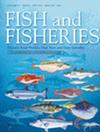Quota Allocation Policies in U.S. Federal Fisheries Management and Implications for Climate Resilience
IF 6.1
1区 农林科学
Q1 FISHERIES
引用次数: 0
Abstract
Quota allocation, which divides fishing catch or effort between regions, sectors, subsectors, individuals, and/or seasons, is one of the most important and contentious processes in fisheries management. Quota allocation policies often aim to advance fairness and equity goals by preserving levels of historical participation and access. However, this reliance on historical patterns makes allocation policies vulnerable to climate change, which is shifting the accessibility of marine resources among historical and new participants. Despite this, there is little guidance on best practices for adapting allocation policies to climate change. In the United States, regional flexibility to design locally relevant allocation policies has innovated a diversity of approaches that can be studied for their climate vulnerability and/or adaptivity. Here, we conduct a systematic review of allocation policies used in U.S. federal fisheries (491 stocks, 42 management plans, 8 regions) and a brief review of allocation policies in international fisheries, which we use to identify best practices for climate‐adaptive quota allocation. We find that allocation policies are used to manage 49% of federally managed stocks. Although most policies are based on historical catch, many include features that promote climate adaptiveness, including the ability to transfer quota between states, sectors, or individuals; adjustment of allocations on the basis of current resource distribution or abundance; set aside of quota to support research and experimentation; and gradual phase‐in of policy changes. Ultimately, we provide eight globally transferable recommendations for improving the ability of allocation policies to advance their fairness and equity goals under climate change.美国联邦渔业管理的配额分配政策及其对气候适应能力的影响
配额分配是在区域、部门、分部门、个人和/或季节之间划分渔获量或渔获量,是渔业管理中最重要和最有争议的过程之一。配额分配政策通常旨在通过保持历史参与和访问的水平来促进公平和公平的目标。然而,这种对历史模式的依赖使得分配政策容易受到气候变化的影响,气候变化正在改变海洋资源在历史和新参与者之间的可及性。尽管如此,关于调整分配政策以适应气候变化的最佳实践的指导很少。在美国,设计与当地相关的分配政策的区域灵活性创新了多种方法,可以研究其气候脆弱性和/或适应性。在这里,我们对美国联邦渔业(491个种群,42个管理计划,8个区域)使用的分配政策进行了系统回顾,并对国际渔业的分配政策进行了简要回顾,我们使用这些政策来确定气候适应性配额分配的最佳做法。我们发现分配政策被用于管理49%的联邦管理股票。尽管大多数政策都是基于历史捕获量,但许多政策都包含促进气候适应的特征,包括在州、部门或个人之间转移配额的能力;根据目前的资源分配或丰度调整分配;预留配额以支持研究和实验;政策变化的渐进阶段。最后,我们提出了八项全球可转让的建议,以提高分配政策在气候变化下推进其公平和公平目标的能力。
本文章由计算机程序翻译,如有差异,请以英文原文为准。
求助全文
约1分钟内获得全文
求助全文
来源期刊

Fish and Fisheries
农林科学-渔业
CiteScore
12.80
自引率
6.00%
发文量
83
期刊介绍:
Fish and Fisheries adopts a broad, interdisciplinary approach to the subject of fish biology and fisheries. It draws contributions in the form of major synoptic papers and syntheses or meta-analyses that lay out new approaches, re-examine existing findings, methods or theory, and discuss papers and commentaries from diverse areas. Focal areas include fish palaeontology, molecular biology and ecology, genetics, biochemistry, physiology, ecology, behaviour, evolutionary studies, conservation, assessment, population dynamics, mathematical modelling, ecosystem analysis and the social, economic and policy aspects of fisheries where they are grounded in a scientific approach. A paper in Fish and Fisheries must draw upon all key elements of the existing literature on a topic, normally have a broad geographic and/or taxonomic scope, and provide general points which make it compelling to a wide range of readers whatever their geographical location. So, in short, we aim to publish articles that make syntheses of old or synoptic, long-term or spatially widespread data, introduce or consolidate fresh concepts or theory, or, in the Ghoti section, briefly justify preliminary, new synoptic ideas. Please note that authors of submissions not meeting this mandate will be directed to the appropriate primary literature.
 求助内容:
求助内容: 应助结果提醒方式:
应助结果提醒方式:


